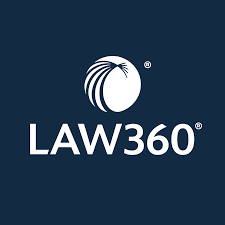By John E. Deaton.
I write to you on this public platform hoping you will truly understand the damage being inflicted on innocent holders of XRP. I represent 68,700 of those holders.
We are users, developers, small businesses, content providers and investors in the digital asset XRP. In 2015, XRP became the first regulated cryptocurrency in the United States, when the Department of Justice Civil Division and the Financial Crimes Enforcement Network (FinCEN) settled with Ripple, declaring XRP a “convertible virtual currency.”
After FinCEN declared XRP a virtual currency, forcing sales to comply with U.S. banking laws (not securities laws), foreign governments, including the U.K, Japan, Switzerland, Singapore and the United Arab Emirates, followed suit – all declaring XRP a non-security.
On December 22, 2020, five years after FinCEN classified XRP a virtual currency and seven and a half years after XRP had been publicly traded in the U.S., on SEC Chairman Jay Clayton’s last day, the SEC filed suit against Ripple alleging XRP to be an investment contract (aka a security) with Ripple.
As you all know, any commodity, asset or product can be packaged, marketed, and schemed into an offer and sale of an unregistered security. In fact, some of the different assets or products that have been packaged or schemed into an offer and sale of an unregistered security are:
- Orange groves;
- Whiskey;
- Beavers;
- Chinchillas;
- Oil and gas;
- Condos; and
- Bitcoin;
to name a few.
The Supreme Court has never found the underlying asset, itself, to be the security. Whiskey is still whiskey, and beavers are still beavers.
In the Howey decision, the Court didn’t find the oranges to be securities, but found the scheme behind the offer and sale of the orange groves to be the security. Usually, the SEC argues a specific transfer at a specific time, by Ripple or its executives, would have constituted the sale of an unregistered security.
But in SEC v. Ripple, the SEC is alleging XRP itself is a security. The SEC claims all sales of XRP are illegal. Period. It is the most reckless and dangerous argument the SEC could make. Because of this unprecedented argument, over 68,000 XRP holders decided to fight back.
I’ve been granted amici curiae status for the benefit of XRP holders. The SEC, however, isn’t too happy about it. They attacked me personally and continue to take shots at the very people they claim they are protecting while prosecuting this case espousing an outrageous theory.
Although it laments amici’s presence in this case, the SEC has only itself to blame for amici’s involvement. In short, if the SEC had clarified its theory regarding XRP, it would’ve prevented amici’s involvement entirely and could have pursued Ripple without involving us. Nine days after the SEC filed the excessively broad complaint, in the interests of present-day XRP holders, I petitioned for a Writ of Mandamus requesting the SEC “amend its complaint against Ripple to exclude present-day XRP, purchased by investors with no connection to Ripple.”
The SEC’s sweeping allegations regarding XRP have been at issue since the filing of this case. In the Complaint and during the litigation of this case, the SEC has repeatedly used conclusory language and allegations suggesting XRP itself – is ALWAYS a security.
At its core, the Writ challenged the SEC’s good faith basis alleging that XRP is a security per se.
Within the Complaint:
- Paragraph 1 labels XRP “a digital asset security”;
- Paragraph 265 says “Because XRP is fungible”;
- Paragraph 267 says “The nature of XRP itself”;
- Paragraph 327 says “The very nature of XRP”; etc.
In fact during the very first hearing, Magistrate Judge Sarah Netburn confronted the SEC and challenged the implausible theory that “every individual in the world who is selling XRP [is] committing a Section 5 violation.”
The SEC’s response to the judge’s comment says everything. The SEC didn’t dispute the premise of the Judge’s question. The SEC instead claimed that XRP transactions by the rest of the world would likely be exempt under Section 4. (An exchange or any issuer would NOT be exempt.)
The SEC’s response was disingenuous at best and downright misleading at worst. Section 4 exemptions ONLY apply to a security subject to registration under Section 5. In sum, the SEC confirmed that regardless of the seller or circumstances of the sale – XRP is a security per se.
Why is this so dangerous and why has SEC Chairman Gary Gensler allowed it to be argued? Because if this premise is accepted by the Court, it would empower the SEC to regulate a vast number of parties not included in this case, including digital asset exchanges, vendors, and retail holders.
The SEC’s overreach threatens the interests of not only XRP holders, but the exchanges and businesses utilizing XRP and it implicates all other crypto assets. The ability for retail holders and small businesses to transact in XRP (and other crypto) could be greatly impaired.
The majority of XRP holders were unaware of a company called Ripple when they first acquired XRP. Tens of thousands of XRP holders acquired it for non-investment purposes. Many acquired the minimum amount to establish a trust line with the XRP Ledger in order to send money home. Many acquired it as a form of payment. Content providers like Time magazine accept XRP as a form of payment. Thus, Time isn’t an investor and Howey doesn’t apply. XRP is used as payroll currency. All of these non-investment uses get swept into the SEC’s overly broad theory.
XRP holders never imagined being implicated in an enforcement action against Ripple and its two executives. We take no position whether Ripple, Brad Garlinghouse or Chris Larsen violated Section 5 of the Securities Act when they offered and sold XRP during 2013 or yesterday. The SEC could have completely avoided amici’s involvement by simply stipulating secondary market sales of XRP, independent of Ripple, are not securities. It should’ve been an easy stipulation considering it would be consistent with SEC guidance and 76 years of legal precedent.
Had the SEC so stipulated, amici’s involvement in this case would have ended before it began. In fact, even Ripple was clear in communicating its position that amici’s interest would be minimal, if the SEC clarified it was not attempting to establish XRP as a security per se.
Similarly, in responding to the Mandamus Writ, the SEC could have confirmed its suit is not intended to affect the secondary retail market for XRP in the United States. But the SEC refused to make such a concession. The SEC’s enforcement lawyers won’t give up this outrageous claim.
The SEC’s sweeping and illegitimate theory is: “The XRP traded, even in the secondary market, is the embodiment of those facts, circumstances, promises, and expectations and today represents that investment contract.” This is from page 24 of SEC’s opposition to my motion to intervene, where the SEC attempts to split proverbial legal hairs by conceding XRP is not a security per se (“this case presents no such question”), while simultaneously arguing all XRP, including XRP traded in today’s “secondary market … represents” a security.
Remarkably, the SEC claims it is not arguing XRP is a security per se, but instead, arguing XRP is a representation of a security.
What does that even mean?
When does an asset transform from being an asset (whiskey, an orange, a beaver or a bitcoin) to also “representing” an investment contract?
The SEC must prove XRP is an investment contract. But the SEC unilaterally changed its burden to proving only a “representation” of an investment contract. The SEC doesn’t get to make up the law in order to satisfy a political desire to regulate a new evolving asset class.
The SEC’s theory regarding XRP is the functional equivalent of arguing the oranges in Howey were not only oranges but also “represented” the embodiment of the investment contract with the W.J. Howey Company. The SEC’s argument is tantamount to legal gobbledygook.
Current SEC Commissioner Hester Peirce seems to agree. The SEC’s precarious expansion of Howey, as applied to XRP, is so intellectually dishonest that Commissioner Peirce publicly criticized the SEC’s theory when she stated: “What we’ve done now is said the orange groves are kind of like the security.”
Personally, I believe the SEC lawyers have crossed an ethical line and lack the good faith required to make such an absurd argument. Their theory is certainly not supported by caselaw because a glaring omission from the SEC’s brief is a single cite supporting its outlandish theory. The SEC cites no legal authority whatsoever supporting the radical departure from needing to prove an actual investment contract to proving a representation of an investment contract (whatever the heck that means).
But what makes the SEC’s argument in the XRP case even more egregious is that it completely contradicts statements made by the SEC itself. The SEC’s farfetched XRP theory is a direct contradiction of public guidance provided by the SEC itself. In fact, as stated, according to the SEC (and 76 years of case law) any asset or commodity can be utilized as a security whether that asset is an orange, whiskey, a beaver or even a bitcoin.
Until the filing of this case, the SEC had never made a material distinction between bitcoin, ether or XRP. The SEC as a regulator made very clear that: “Whether a cryptocurrency is considered a security will depend on the characteristics and use of the cryptocurrency.” The emails from the SEC’s Office of Investor Education and Advocacy consistently provided the same exact guidance regardless of whether it was discussing bitcoin, ether or XRP. The SEC’s theory regarding XRP also contravenes proclamations made from the most senior officials at the SEC.
Read the 2018 speech by then-SEC Director of Corporation Finance William Hinman, where he says: “The token – or coin or whatever the digital information packet is called – all by itself is not a security, just as the orange groves in Howey were not.” Hinman noted that when dealing with digital assets like bitcoin, ether and XRP: “The digital asset itself is simply code.” Hinman also emphasized “that the analysis of whether something is a security is not static and does not strictly inhere to the instrument.”
Then SEC-Chairman Clayton agreed when he wrote to Congressman Ted Budd (R-NC): “I agree [with Director Hinman] that the analysis of whether a digital asset is offered or sold as a security is not static and does not strictly inhere to the instrument.”
“A digital asset may be offered and sold initially as a security because it meets the definition of an investment contract, but that designation may change over time if the digital asset later is offered and sold in such a way that it will no longer meet that definition,” Clayton wrote.
The SEC’s XRP theory clearly contradicts the SEC’s public statements. Relevant caselaw offers the SEC zero support. In SEC v. Shavers, bitcoin was utilized in a scheme that the federal Eastern District Court of Texas found constituted an illegal securities offering. Bitcoin itself was not considered the security.
In addition, we have the Telegram decision explicitly holding, as Hinman stated, that the token itself is never the security: “The security in this case is not simply the Gram, which is little more than alphanumeric cryptographic sequence.” Telegram was an ICO and, unlike this case, involved contracts signed by the Gram purchasers. Thus, if there ever existed a case where the token itself constituted the security, it would be Telegram. Yet, Judge Castel held that ““the ‘security’ was neither the Gram Purchase Agreement nor the Gram but the entire scheme that comprised the Gram Purchase Agreements and the accompanying understandings and undertakings made by Telegram.”
The only conceivable way to attempt to prove the extraordinary claim that XRP itself represents a security is to prove secondary market sales, independent of Ripple, were acquired by investors who entered into a common enterprise w/ Ripple, and all other XRP holders, based on the promises and inducements offered by Ripple, which caused those secondary market acquirers to expect profits from Ripple’s efforts. Yet, as stated, the majority of XRP holders were completely unaware of the company Ripple when they first acquired XRP.
Thousands of XRP holders acquired XRP for non-investment reasons. There are several XRP debit cards that allow you to use XRP as a substitute for fiat currency. Some XRP holders get paid in XRP. These use cases don’t even satisfy the first prong of Howey (an investment).
Tens of thousands of XRP holders stake their XRP for interest or collateralize their XRP to secure a fiat loan – thus obtaining a financial benefit completely independent of Ripple (this fails the common enterprise factor as well as relying on the efforts of Ripple factor).
While the skilled lawyers from both sides strategize their next move in order to gain a competitive litigation advantage, innocent users, developers, investors and holders of XRP, with no connection to these Defendants, fretfully await the outcome.
Will you do anything about it?












